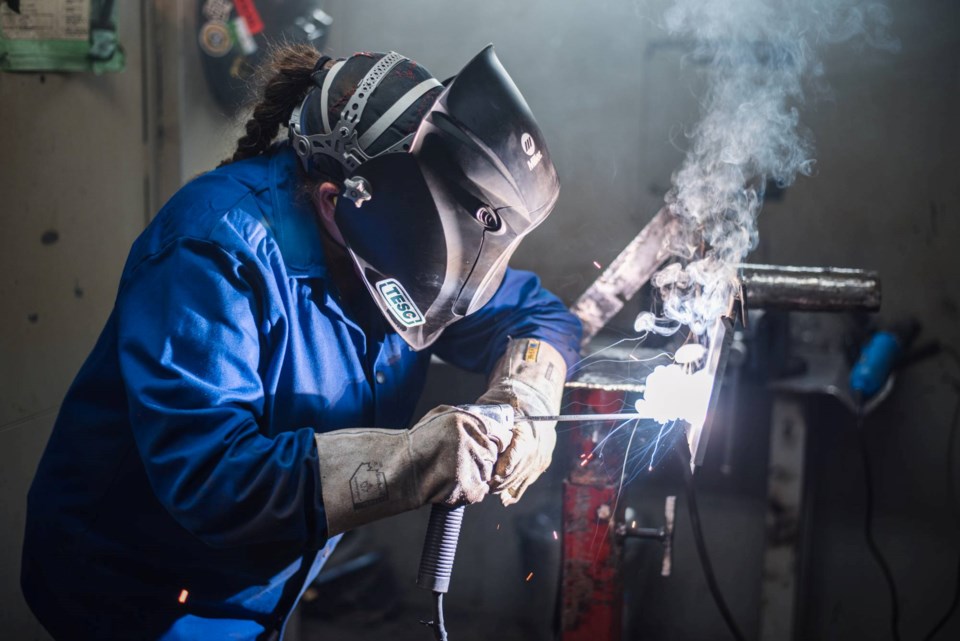Ontario Building and Construction Tradeswomen (OBCT) has launched a new initiative aimed at getting more tradeswomen in front of audiences to share their personal experiences working in the construction trades.
Launched in June, the OBCT Speakers’ Bureau enables interested organizations to contact an Ontario tradeswoman directly and book her for speaking engagements at career fairs, corporate events, trade shows and other appearances.
Kate Walsh, the executive director of communications and program manager for the OBCT, said the organization regularly receives calls from schools, trade organizations, and women’s groups about having tradeswomen speaking at their events.
Rather than send the same people all the time, recruiting a group of women who are available and interested in doing that work makes it easier to meet those requests.
“There's such passion and a willingness to share from women about how getting into the trades has really improved their life and what a rewarding career it can be, but to also have that frank conversation that there's a lot of challenges around it,” Walsh said.
“It's just a real, authentic way to share their experience.”
Currently, about a dozen tradeswomen are listed as part of the Bureau, with expertise ranging from electrical to millwrighting to carpentry. Walsh said OBCT is looking to double that number in the coming months as more tradeswomen express interest in becoming involved.
Included on the list is Sudbury’s Nickie Lavoie, a veteran boilermaker and weld instructor who has been a strong voice for women in the trades.
OBCT is a committee of the Provincial Building and Construction Trades Council of Ontario.
Since its creation in 2019, its work has focused on promoting the skilled trades to women and providing support that will help them succeed.
The organization regularly holds information and training sessions for members, helps them find apprenticeships, and sets up mentorship opportunities that pair experienced tradeswomen with those just starting out in the industry.
Some of their information sessions centre on public speaking and building confidence in presenting, Walsh said.
“We run these courses regularly, and we've had hundreds of tradeswomen or women looking to get into the construction sector participate in these courses,” she said.
“Now they're more comfortable presenting and now they want to make themselves available to talk about their experience in the trades.”

But as much as a tradeswoman might want to share her story, “when she’s not working on the tools, she’s not getting paid for that,” Walsh added, and a lot of the same women get asked to speak at events over and over again.
“Once you get voluntold for something, all of a sudden you’re the go-to,” Walsh said. “And it happens a lot in our industry, because there is a smaller percentage than men.”
So OBCT offers a gentle reminder right on the website about how to compensate women for their time.
There’s no formal fee set for a tradeswoman’s appearance, but Walsh said compensation equivalent to what she would receive as part of her hourly wage package is considered fair.
Having said that, OBCT is aware that not every organization has the budget to pay for guest speakers, so Walsh said they try to work out an arrangement so that the tradeswoman can still be compensated.
Each tradeswoman has her own area of expertise, but Walsh said, time and again, what appeals to audiences most is her personal story of how she landed where she did: did she have previous experience? What challenges did she face? What does a typical day on the worksite look like?
Dispelling myths around a trade is a big part of helping women understand them better.
“What students really want to know is what is your journey? What does your path look like?” Walsh said. “We find with most tradespeople … it’s not linear.”
